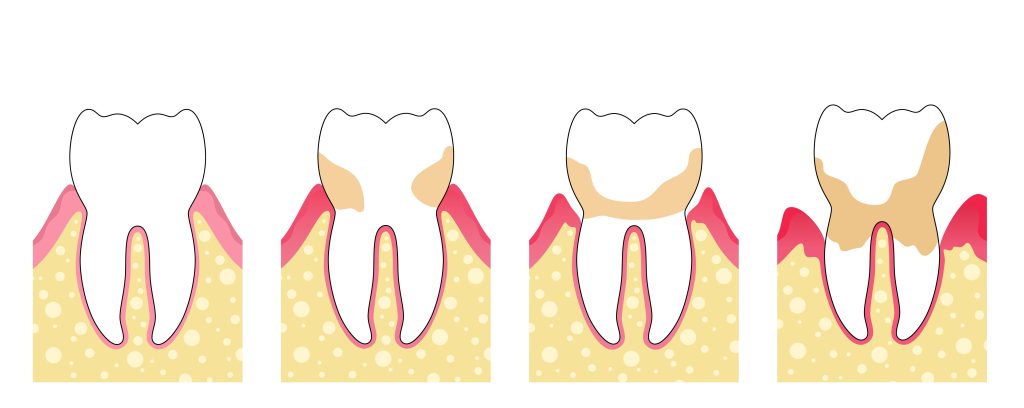The periodontium is the tissue that surrounds and supports the teeth, starting with the gum, which is the visible part. When a patient suffers from periodontitis, it means that these tissues are affected by an infectious disease.
The Centre Dentaire & D’implantologie Boucherville tells you more about periodontitis and its treatment.
How Periodontitis Develops
First of all, it is important to know that the abnormal accumulation of bacteria is responsible for the development of periodontitis. Of course, it is normal that your mouth contains a large number of bacteria; there are approximately 700 different species! Bacteria are divided into two types:
- Commensal, inside the oral cavity
- Periodontopathogenic, coming from the outside
It can happen that periodontopathogenic bacteria are found in your mouth without causing any problems. However, periodontitis develops when they appear between the tooth and the gum. The accumulation of commensal bacteria can also lead to periodontitis.
Before suffering from periodontitis, the gum alone will be affected by these bacteria. The latter will cause inflammation, and symptoms such as swelling, redness or bleeding may appear. Periodontitis occurs when the infection spreads to the internal tissues, including the alveolar bone, where the teeth take root.
What causes periodontal disease is primarily poor oral hygiene habits. To avoid an accumulation of bacteria, it is necessary to eliminate the plaque and tartar that forms on the teeth. This is done first by brushing twice a day and flossing daily, and then by visiting the dentist regularly for teeth scaling.
If your body has antibodies to fight the development of infectious diseases, there are certain predispositions that can accelerate their deterioration. Indeed, periodontitis can evolve more quickly according to factors such as:
- Tobacco consumption
- Hormonal changes, i.e. pregnancy and menopause
- Diseases such as diabetes
- Taking certain medications, including antidepressants
- Genetics
- Chronic stress
If you are prone to developing periodontal disease, your dentist may suggest more regular visits.

Natural Treatments
Of course, at an advanced stage, periodontitis will often require surgical interventions. Is it possible to avoid them? Yes. Is it possible to treat periodontitis on your own, without visiting a professional? No.
In fact, your dentist or periodontist (a specialty in dentistry) could perform what is called a periodontal decontamination, a non-surgical treatment.
Afterwards, it is important to follow very specific instructions and to develop healthy oral habits. You must therefore exercise rigor: brush your teeth twice a day and floss daily. An electric toothbrush may be recommended.
Your dentist may also suggest a toothpaste better suited to your condition. Not all toothpastes have the same effect, and some are designed for patients with periodontal disease. Mouthwash also helps to eliminate the bacteria involved.
It is therefore possible, in some cases, to treat periodontitis in an almost 100% natural way. However, in the case of tooth decay or bone loss, surgical procedures are unavoidable: healthy hygiene habits cannot restore the lost gums or bones.
Gum recession will necessarily have to be treated with a gum graft. Other surgical treatments may also be necessary depending on the condition of your periodontal tissues.
Adopting a healthy lifestyle helps limit the development of periodontal disease. Reducing or stopping smoking is a frequent recommendation from your dentist, as this habit harms your mouth in many ways. Certain risk factors such as stress can also be controlled.
Finally, the quality of your diet plays a role in your overall health, and that includes your oral health! Reducing sweets to avoid damage is not enough; it is also important to have an adequate intake of vitamins, calcium, fluoride, etc. Of course, we hear it over and over again: drinking plenty of water is essential!
Ask your dentist at the Centre Dentaire & D’implantologie Boucherville about possible treatments for your periodontitis or to receive advice on how to avoid it. Our professional team awaits you!

